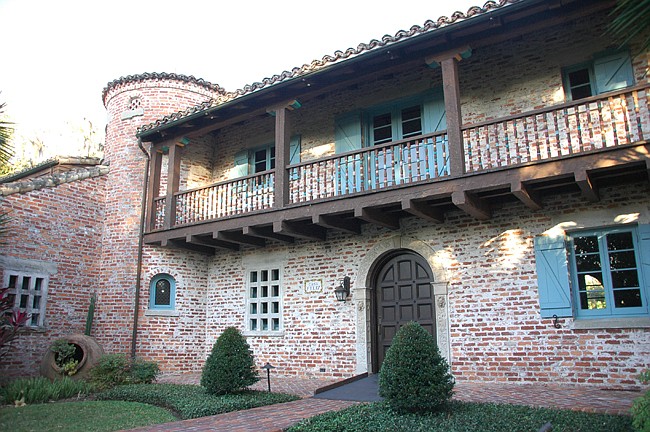- April 19, 2024
-
-
Loading

Loading

Winter Park’s Historic Preservation Advisory Board received a rude awakening Nov. 14 as archaeologist Myles Bland reviewed the city’s historic preservation ordinance, declaring that the city will surely lose its historic resources if changes aren’t made.
The city commissioned Bland to take a closer look at their historic preservation efforts in response to the outcry from residents after the recent controversy over the 128-year-old Capen House.
Winter Park’s historic resources were sparse to begin with, making up only 8 percent of the city’s total residential and commercial structures combined, Bland said.
The city currently loses 1.2 percent of net known historic structures each year to demolition, according to his report.
“Use it or lose it folks…historic resources are non-renewable, and once they’re gone they can’t be replaced,” said Bland, who has more than 18 years of archaeological experience.
“This is a grim trend that is in need of reversal.”
Bland came forward with 12 different critiques in regards to how the city designates historic landmarks, ways they can obtain funding for historic preservation and new ordinances that should be put in place.
Some of biggest problems Bland pointed out involved incorrect and out-of-date information. The city’s survey areas need more of a comprehensive look, Bland said. Many parts of the city have yet to be surveyed, leaving entire neighborhoods unchecked for historical resources.
A failure to update the surveyed areas has also left the city with flawed data. Several buildings have different addresses since they were surveyed over the past few decades, resulting in hundreds of incorrect forms.
“From a technical standpoint, this has to be done first, because if you don’t know the voids inside your area, you can’t really move forward,” Bland said.
Bland took to task the city’s method of designating historic districts. A historic designation in Winter Park requires 20 percent of the population of a proposed historic district to sign a petition, as well as a threshold of at least two-thirds of the property owners in the proposed district to submit a ballot in favor of its formation.
Bland saw the voting aspect as one of the city’s biggest problems, explaining that it turns the process into a social affair that “pits neighbor against neighbor” and defines the districts by modern social structure.
Landmarks require the same voting process, he said, resulting in many landmarks being unprotected.
“Voting is not the norm,” Bland said. “It is quite odd and certainly counterproductive to historic preservation.”
“The public voting just makes it a fight really.”
Bland insisted that there’s still much more the city can do to promote historical designation. An official certified local government status for Winter Park could lead to additional funding for historic structure surveys and the development of guidelines for ordinances – a simple step that has yet to be taken.
The city would be better served with an archaeological ordinance as well, Bland said, which would lay down guidelines for how to identify, protect and recover artifacts during a construction project. Specific zones based on the probability of finding artifacts would also make construction teams aware of potential archaeological risk.
Local residents spoke out following Bland’s presentation, agreeing that the city needs to take action as quickly as possible.
“I definitely appreciate Mr. Bland’s report and all of his facts and information tonight,” said Julie Lamar, chair of the board of Friends of Casa Feliz. “One of the things that rang true to me is the sense of urgency about revising our ordinance.”
“We are losing hope of having districts with every demolition that happens.”
Other residents urged the city to bring Bland’s presentation before the City Commission.
“I think there was a terrific amount of information presented tonight,” said Betsy Owens, executive director of Casa Feliz. “This is obviously a critical issue for our city. I think it would be a real shame if our City Commission were to not hear his report.”
The City Commission will receive a presentation from Bland at a future meeting date to be determined.